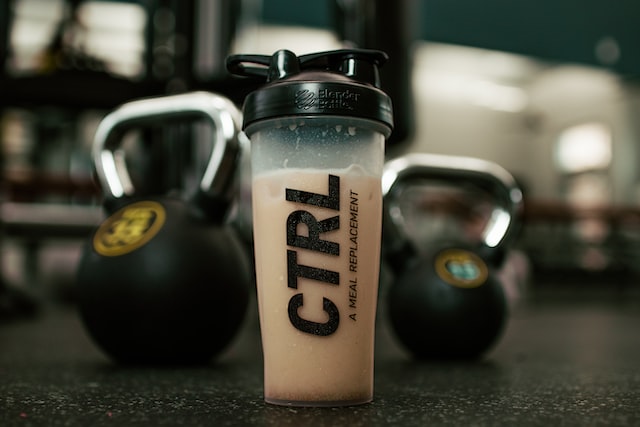Lose weight: Can you use protein to lose weight?

Lose weight; how can I use protein? Learn how to take protein if your goal is to lose weight and maintain muscle mass. When used correctly, protein supplements can help you gain weight and fight fat. At the same time, you must understand that protein compounds cannot directly affect the process of reducing adipose tissue. By using protein to lose weight, you protect muscle tissue from breakdown. How to do this correctly, we will now find out.
Can you use protein to lose weight?
Protein compounds are essential for humans. Let’s start with the fact that it is from them that all substances consist. In addition, proteins will perform other functions, for example, energy. For our body to be in good shape, it is necessary to consume a specific protein compound daily. You probably know that it is from 2 to 2.5 grams per kilogram for people who preach an active lifestyle.
It should also remember that proteins are constantly consumed by the body, even during sleep. When there is a lack of this nutrient, the quality of hair and nails deteriorates, and the cellular structure of muscle tissue begins to break down. It is because the body is trying to eliminate protein deficiency. For it, muscles are not the most critical tissues.
For this reason, most athletes and people who want to lose fat today use protein to lose weight. Since the consumption of all nutrients increases during training, it becomes difficult to get a daily dose of protein only with the help of food. But this is not a big problem today, as we can always purchase protein supplements.
Scientists have found that protein helps slow down the absorption of fats and carbohydrates, leading to the formation of new subcutaneous fat. Protein supplements can also satisfy hunger without increasing the total calorie content of the nutrition plan.
Here are the main effects that can be obtained when using protein supplements:
- Metabolic rate increases.
- The activity of the body’s defense systems increases.
- The liposuction process is accelerated.
- The feeling of hunger is eliminated.
Women often use starvation diets to fight fat, but the result is always the opposite, and the weight increases. But the situation can change dramatically if you combine active sports with protein supplements.
How to use protein to lose weight?
Before talking about how to use protein for weight loss, you should find out what supplements are available. Whey protein is the most popular right now, which is effective for weight loss and weight gain. Its peculiarity lies in its rapid absorption by the body. There are three types of whey protein, but the isolate is mainly used.
In recent years, the popularity of casein has grown quite rapidly. Unlike whey protein, which digests in 10-20 minutes, casein can carry protein supplements into the body for at least six hours. It has been confirmed that muscle tissue grows mainly at night, so it is worth taking casein before bed. It should also note that casein has a Thermo genic effect, reduces appetite, and increases bone density.
Soy protein has an inadequate amino acid profile and is not the best solution for those looking to lose fat. At the same time, it has a low energy value. To lose weight, you first need to reduce the number of carbohydrates consumed and bring this number down to 100 grams per day or a maximum of 120. For the most part, the use of protein for weight loss and weight gain is characterized only by that nutrition program you use. If you consume more calories than you expend, your muscles will grow and vice versa. Of course, this is only possible with regular training.

It is necessary to take protein for weight loss before training, for about half an hour, and 60 minutes after it ends. Since protein supplementation is low in energy, the calorie content of the nutritional plan will not increase significantly.
At the same time, you shouldn’t rely on your total daily protein intake from supplements. Should include protein in your diet. About one-third of the daily information on protein molecules comes from protein supplements and must obtain the rest from food.
